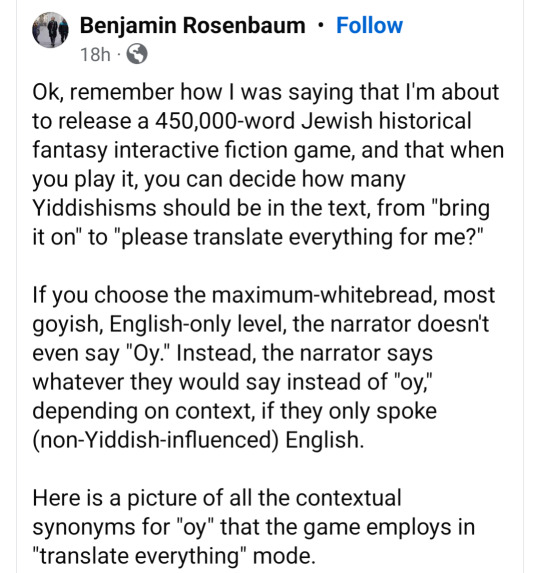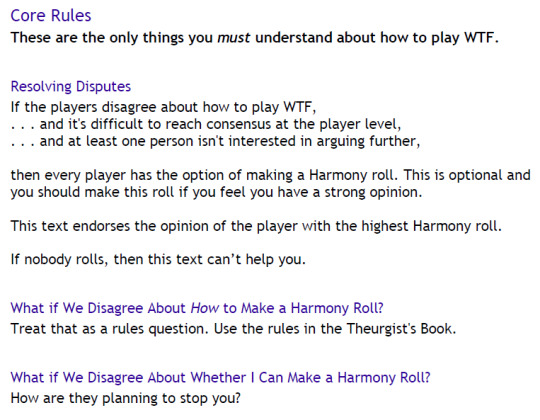Text

Cornelia Parker — Cold Dark Matter; An Exploded View (otherwise known as "The Exploded Shed", is the contents of a garden shed exploded by the British Army at the Army School of Ammunition in Warwickshire, 1991)
1K notes
·
View notes
Text

a great article that I know some people on here definitely need to read 😌
12K notes
·
View notes
Text
okay here's some actual life advice for new parents
go to the library.
those toddler reading times are actually community-building events where you can meet fellow new parents with children the same age as your kid. you know how it's hard to socialize with all your friends, especially if they don't have young children? well here's a group of people that are far more likely to understand your situation and have free time that isn't after 9 pm on a school night. plus your kids can learn how to socialize with their own peer group. AND it's free
do NOT show up and scroll thru ur phone the entire time, the library isnt daycare, you need to be present too
1K notes
·
View notes
Text
Just found out about this forthcoming variant for Blades in the Dark, and I have to say, I am exceedingly looking forward to it. It reminds me heavily of the classic game No One Lives Forever.
83 notes
·
View notes
Text
What Is This Prime Day Shit
Go over here. Get cheap ebooks, direct from the author.
And OWN THEM ALWAYS. Because we're not funding a space program.
Just stories. :)
4K notes
·
View notes
Text
so i guess today i disrupted the UN "ai for good" summit and got arrested with a friend



27K notes
·
View notes
Text

a great article that I know some people on here definitely need to read 😌
12K notes
·
View notes
Note
does misogyny affect non-binary people? at what point does it stop being misogyny?
does a bullet cease being a bullet if it hit the wrong target? did it come any less from a gun?
131 notes
·
View notes
Text
The thing is, Jean Valjean’s “nineteen year prison sentence for stealing a loaf of bread” from Les Mis isn’t actually unusual….not even today! I see people talking about it as if it’s strange or unimaginable when it happens every day.
In modern America — often as a result of pointlessly cruel (and racist) habitual offender and mandatory minimum laws— people are routinely sentenced to life in prison for minor crimes like shoplifting or possession of drugs.
The ACLU did a report in 2013 detailing the lives of various people who were sentenced to life in prison without parole for nonviolent property crimes like:
•attempting to cash a stolen check
•a junk-dealer’s possession of stolen junk
metal (10 valves and one elbow pipe)
•possession of stolen wrenches
•siphoning gasoline from a truck
•stealing tools from a tool shed and a welding machine from a yard
•shoplifting three belts from a department store
•shoplifting several digital cameras
•shoplifting two jerseys from an athletic store
• taking a television, circular saw, and a power converter from a vacant house
• breaking into a closed liquor store in the middle of the night
And of course, so so so many people sentenced to life without parole for the possession of a few grams of drugs.
And we could go on and on!
Gregory Taylor was a homeless man in Los Angeles who, in 1997, was sentenced to “25 years to life” for attempting to steal food from a food kitchen. He was released after 13 years. The lawyers helping to release him even cited Les Miserables in their appeal, comparing Taylor’s sentence to Jean Valjean’s.
And there’s another specific bit of social commentary Hugo was making about Valjean’s trial that’s still depressingly relevant. He writes that Valjean was sentenced for the theft of loaf of bread, but also that the court managed to make that sentence stick by bringing up some of his past misdemeanors. For example, Valjean owned a gun and was known to occasionally poach wildlife (presumably for his starving family to eat.) . So the court exaggerates how harmful the bread theft was—he had to smash a windowpane to get the bread, which is basically Violence— then insist the fact that he owns a gun and occasionally poaches is proof that he is habitually and innately violent. Then when Valjean obviously becomes distressed traumatized and furious as a result of his nakedly unjust sentence and begins making desperate (and very unsuccessful/impulsive/ poorly thought through) attempts to escape…. the government indifferently tacks more years onto his sentence, labels him a “dangerous” felon, and insists that its initial read of him as an innately violent person was correct.
And it’s sad how a lot of the real life stories linked earlier are similar to the commentary Hugo wrote in 1863? Someone will commit a nonviolent property crime, and then the court insists that a bunch of other miscellaneous things they’ve done in the past (whether it’s other minor thefts or being addicted to drugs or w/e) are Proof they’re inherently violent and incapable of being around other people.
A small very petty fandom side note: This is also why I dislike all those common jokes you see everywhere along the lines of “lol it’s so unrealistic for the police to want to arrest Valjean over a loaf of bread, there must have been some other reason the police were pursuing him. Because the state would never punish someone that harshly and irrationally for no reason. so maybe javert was just gay haha”. (Ex: this tiktok— please don’t harass the creator or poster though, I don’t think they were intending to mean anything like that and its just a silly common type of joke you see made about Les mis all the time so it’s not unique in any way.) because like.
As much as I don’t think Les Mis is a flawless book or that its political messaging is perfect….the only way that insanely long unjust sentences for minor crimes is “unrealistic” is if you’re operating on the assumption that prisons are here to Keep You Safe by always only punishing bad criminals who do serious crimes. And that’s just, not true at all. Like I get that these are just goofy silly shallow jokes, and I’m not angry or going to harass anyone who makes them. but it feels like there’s an assumption underlying all those goofy jokes that “this is just not how prison works!” “Prisons don’t routinely sentence people to absurd laughably unjust pointless sentences!” “Prisons give people fair sentences for logical reasons!” When like…no
Valjean being relentlessly hounded and tortured for a minor crime in a way that is utterly ridiculous and arbitrary in its cruelty is not actually a plot hole in Les mis. It’s a plot hole in …..society ajsjkdkdkf. And the only way to fix that is to fight for prison abolition or at least reform, and (in America) stand up against the vicious naked cruelty of habitual offender and mandatory minimum laws.
But yeah :(. I hate how Les Mis opens with a prologue saying the novel will be obsolete the moment the social issues it describes have been resolved— but two hundred years later, the book is still more relevant than ever because we’re dealing with so many of the exact same injustices.
7K notes
·
View notes
Text


Time shifting
––
I wanted this but the original poster is transphobic
95K notes
·
View notes
Photo

Noss National Nature Reserve, Isle of Noss, Bressay, Shetland, Scotland
42K notes
·
View notes
Text
yeah he can quote lenin, but does he know how to run a business meeting?
4K notes
·
View notes
Text
guy who plays popular ttrpgs: how do you calculate flame damage
guy who plays indie ttrpgs: how do you calculate ignition ravages
13K notes
·
View notes
Photo

Dragon in the Clouds by Kani Tansuin Morimichi, (1784 - 1835)
2K notes
·
View notes



